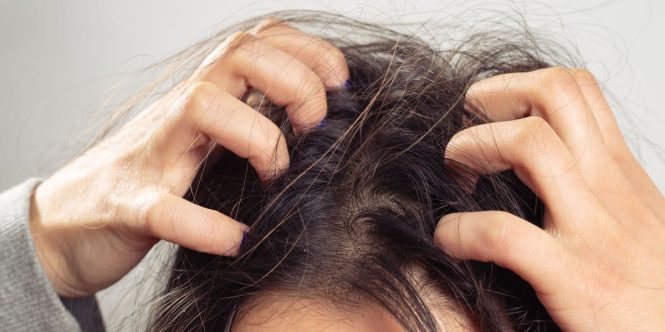

The itch that won’t quit, a relentless sensation that disrupts daily life, can have multiple causes. This article explores the complex world of persistent skin irritation, delving into its underlying causes, effective treatment strategies, and the importance of professional guidance. We’ll cover everything from common skin conditions to potential allergic reactions, equipping you with the knowledge to understand and manage this common yet often frustrating problem. This comprehensive guide will break down various causes, explore potential treatments, and empower you to take control of your skin health.
Understanding the Root Causes of Persistent Skin Irritation
Persistent skin irritation, often characterized by an incessant itch, can significantly impact a person’s quality of life. The condition, frequently referred to as the “itch that won’t quit”, can stem from a range of underlying causes, including allergic reactions, inflammatory skin conditions like eczema, and certain infections. Understanding the specific trigger is the first step toward finding relief.
Allergic Reactions
Exposure to allergens, such as certain foods, cosmetics, or environmental factors, can lead to an allergic reaction that manifests as skin irritation. Symptoms can include redness, swelling, itching, and even hives. Identifying the specific allergen is crucial for avoiding future reactions.
Inflammatory Skin Conditions
Conditions like eczema and dermatitis are characterized by chronic inflammation, often accompanied by itchy, dry, and inflamed skin. These conditions frequently require ongoing management with a combination of topical treatments and lifestyle adjustments.
Diagnosing the Underlying Cause
Accurately diagnosing the root cause of persistent skin irritation is essential for developing an effective treatment plan. A thorough evaluation, combined with a detailed medical history, is critical to understanding the specific trigger.
Importance of a Medical Evaluation
It’s crucial to consult a dermatologist for a proper diagnosis. A dermatologist can perform physical exams, review medical history, and potentially conduct allergy tests or skin biopsies to pinpoint the precise cause of the irritation. This step ensures appropriate and effective treatment.
Self-Assessment Tools
While a medical evaluation is paramount, some self-assessment tools can help identify potential triggers. Keeping a detailed diary noting what you eat, touch, or are exposed to when the irritation occurs can provide valuable clues. This information can be shared with your dermatologist to aid in diagnosis.
Effective Treatment Strategies for Skin Irritation
Once the underlying cause is determined, a tailored treatment plan can be implemented. Treatment options vary depending on the specific cause.
Topical Treatments
Moisturizers, hydrocortisone creams, and other topical treatments can soothe irritated skin. These treatments provide targeted relief from itching and inflammation, often in conjunction with other management strategies.
Lifestyle Adjustments
Lifestyle modifications play a significant role in managing persistent skin irritation. Avoiding known triggers, such as certain foods or allergens, and maintaining a consistent skincare routine can significantly minimize flare-ups.
Home Remedies for Temporary Relief
While professional medical attention is crucial for long-term management, several home remedies can offer temporary relief from the discomfort of persistent skin irritation.
Cool Compresses
Applying cool compresses to the affected area can provide soothing relief from itching and inflammation.
Avoiding Scratching
Although difficult, avoiding scratching the affected area is vital to prevent further irritation and potential infection.
When to Seek Professional Help
Persistent skin irritation should not be ignored. Seek immediate medical attention if the condition worsens, spreads rapidly, or is accompanied by other symptoms, such as fever, chills, or pus.
Warning Signs
Certain warning signs require immediate medical intervention, including persistent fever, spreading lesions, and excessive swelling. These situations may indicate a more serious underlying condition.
In conclusion, persistent skin irritation, often referred to as the “itch that won’t quit”, can stem from a variety of underlying causes, ranging from allergies and eczema to fungal infections and even certain medications. Understanding these potential triggers is crucial in effectively addressing the issue. This article has provided a comprehensive guide to identifying and managing persistent skin irritation, offering practical advice and actionable steps to relieve discomfort and restore skin health. For further personalized guidance, consider consulting a dermatologist. They can perform a thorough evaluation, rule out serious conditions, and recommend the most appropriate treatment plan for your specific situation. Remember, proactive care and seeking professional help can significantly improve your quality of life when dealing with chronic skin irritation.